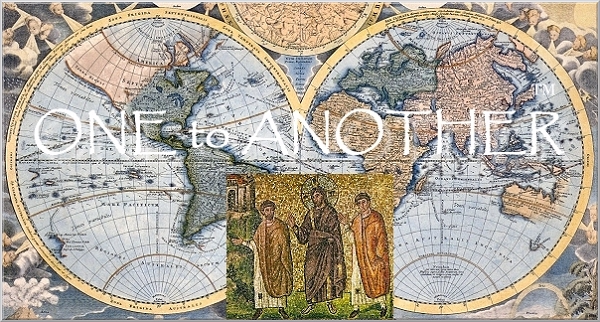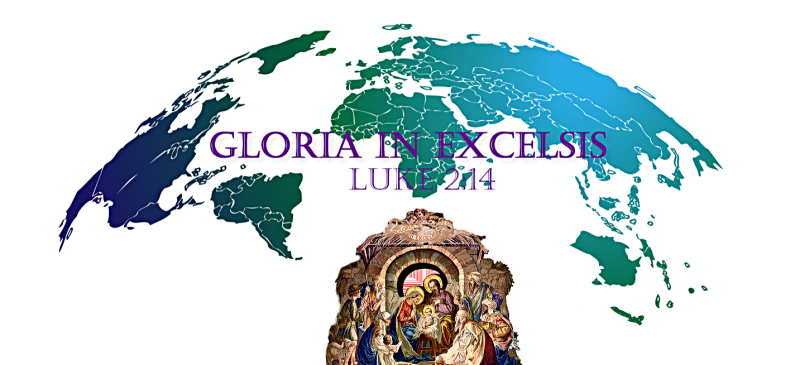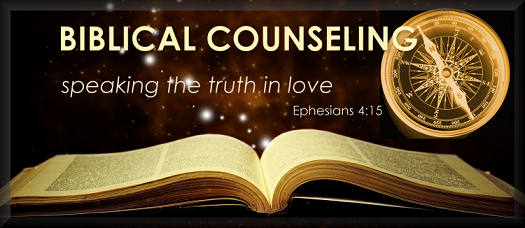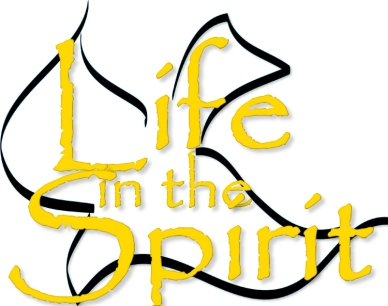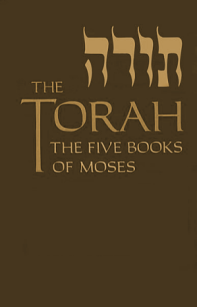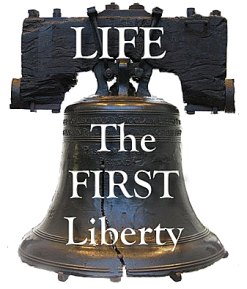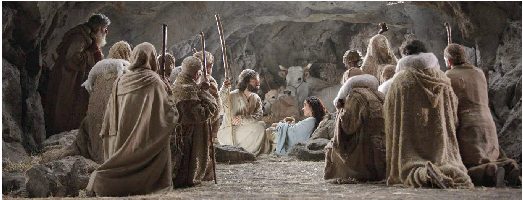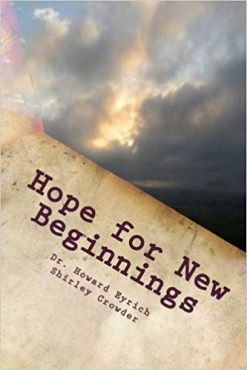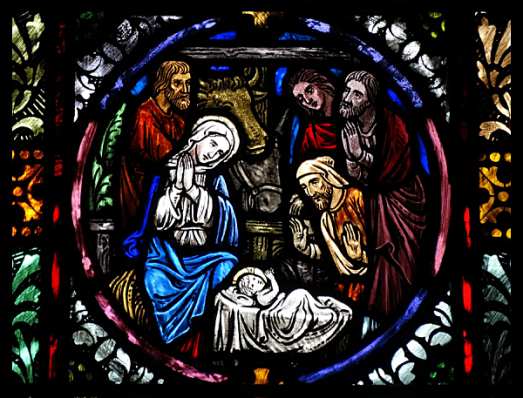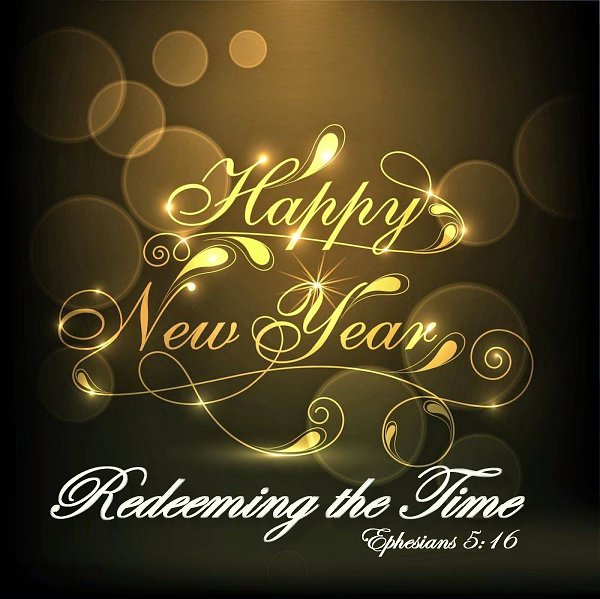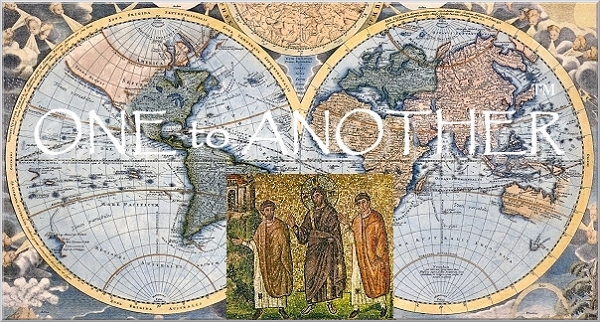MASTER'S International UNIVERSITY of Divinity
Bi-Monthly Information and Teaching Journal
ONE to ANOTHER ~ December 2017 - January 2018 ~ Volume IV ~ Issue 1
In This Issue
The Moral Difference Between Right & Wrong | In the Beginning | The Baptism of the Holy Spirit | Book Review
Divine Appointments | Abortion Advocates Imposing Ignorance | Christmas Gift-giving in Creation
Thanks Be to God for His Indescribable Gift | Thoughts for the New Year| Let Your Light Shine | At Least At Christmastime
How Do Humans Beings Know the Moral Difference Between Right and Wrong? Or, What is Natural Law and the Noahide?
Part III
Continued from the previous Journal.
Dennis D. Frey, M.Div., Th.D., President
NEW COURSE AVAILABLE - Interested in learning more about this subject? Master's offers a new Advanced Accelerated Course on this often negleced subject. The Laws of Universal Righteousness: Natural Law, the Noahide and the Torah LUR-1500-AOC
The purpose of this course is to address the fundamental question of how it is that human beings understand the moral difference between right and wrong, and why that understanding commands personal accountability.
Click here for information on signing up for this special four-week course.
III. WHAT IS THE NOAHIDE?
There has been a long-standing opinion among Jewish scholars that Gentiles who follow the seven laws of the Noahide can be considered "righteous Gentiles" who qualify for a share in the coming Kingdom of God. The exception (among most but not all) being those Gentiles who worship Jesus and the Holy Spirit (Trinitarians) as part of the Godhead which is viewed as idolatry. This is a perversion, and not relevant to this study.
There is also an increasing interest among some so-called Christian groups to exchange Biblical Christianity for a works-based Christianized version of the Noahide. This too is a perversion, and not relevant to this study.
That there are universally known moral requisites demands an answer to the question of what they are. To answer that question we present another question namely, "What is the Noahide?".
To answer this question with a question I turn to Dr. Rabbi Shimon Cowen's words in his seminal document on the Noahide Laws.
"There are seven laws, which are biblically binding on all humanity. They are prohibitions on idolatry, blasphemy, forbidden sexual relationships, theft, murder, lawlessness (the failure to establish courts and processes of justice) and the improper treatment of nature (framed as a prohibition of the consumption of the limb of a living animal).
They are known as the Noahide laws, after Noah, the biblical survivor of the Flood, and ancestor of all humanity.
These laws are an intrinsic "possession" of humanity. For, to use the biblical phrase, the human being is "created in the image of G-d," that is to say, fitted to "imitate G-d," and this imitation takes place through the performance of the Divinely given Noahide commandments." 1
Thus, the Noahide laws are seven. It is of more than passing interest that the number seven is the number of perfection, and that there are seven colors in the rainbow. The seven laws (sometimes stated using only slightly different wording and the order of six and seven reversed) are these:
- Do not deny God.
- Do not blaspheme God.
- Do not murder.
- Do not engage in illicit sexual relations.
- Do not steal.
- Do not eat from a live animal.
- Establish a system to fairly adjudicate the other six laws.
Do these seven laws cover all aspects of universal morality? Yes, and no. The answer is no if only the stated law is considered. On the other hand, the answer is yes if the implications of each are considered.
For example, commandment five (Do not steal), covers all forms of a misappropriation of what rightly belongs to another (a persona) or to others whether a small group or a nation. So when one nation by an act of aggression claims territory belonging to a weaker nation, that is a violation of the fifth Noahide commandment.
The same would hold true when a corporation by subterfuge acquires a customer list from a competitor. And so forth for all of the other Noahide commandments.
One might argue that the first command (Do not deny God) is merely a religious preference, and not a universal law of righteousness, but that would be to underestimate it's universal application. Because the first commandment of the Noahide can be understood as a prohibition against denying religious freedoms in general.
Concerning all seven, it is clear that in nations of all times, these seven have been at the heart of just and equitable law. Human beings universally recognize some things as being right, and others wrong. For example, lying, cheating, stealing, murder, sexual deviance, hurtful aggression, and a host of other such things are recognized as punishable by law. Human beings are inescapably possessed with the blessings and curses associated with issues of morality.
To be continued...
1. The Theory and Practice of Universal Ethics - The Noahide Laws, by Dr. Rabbi Shimon Dovid Cowen, ISBN-13: 978-0826608437, Kehot Publication Society, 2015, Introduction, pages 1 & 2.
How are we to understand ourselves and our problems? The Bible starts with “In the beginning God…” Immediately, we recognize a distinction with respect to other views held about life. All other views begin and end with man. The Bible, in order to understand man, begins with God.
It is therefore necessary before asking yourself questions about yourself - your problems and so on - to ask, where did I come from? Why am I here? Who is God? What is my purpose? People, mistakenly, want to start with their problems and in doing so they fail to see the larger picture. They fail to put life in its context. The only way you can truly understand yourself and life is to start with God. Does the universe and man exist as the result of the activity of God or blind chance? Are we the creatures of a Being, a Person, or the result of the accidental and purposeless collision of atoms?
The Bible puts life in its context and then goes on to answer and address the particulars. Humanistic sychology, as well as other forms of false philosophy, start with you and end with you. They suggest your situation is due to the environment, childhood, or a plethora of disorders. They propose things to you and do certain things to you. The whole effort is focused upon you. They presuppose evolution therefore their efforts to truly understand man are futile. The Bible teaches us that human beings cannot be understood until we realize that behind everything, before everything, is God.
“In the beginning God… Then God said, ‘Let Us make man in Our image and according to Our likeness…” The Bible talks about you however; it doesn’t start with your problems. It begins by placing you in a context. You say you want answers to the immediate problem that has made you unhappy and depressed. That is fine but a diagnosis must be made first. A physician doesn’t just administer a drug until he first makes a diagnosis of the cause of your problem. His goal is to treat you for a particular disease and not just to alleviate symptoms. He must go backwards from the symptom to understand its origin. You say you are dizzy. Dizziness may be the side effect of a prescription medication you are taking. Perhaps you are suffering from a concussion as the result of hitting your head? Do you have an inner ear problem? Do you suffer from allergies? The Bible begins by going backwards and telling you that you were created by God in His image and likeness. “In the beginning God! “
The Baptism of the Holy Spirit
Read Acts 1:1-5
A young lad asked his mother, “Mom, who made the moon?” His mother replied, “God.” He then asked, “Who made the stars?” Again the mother answered, “God.” The lad continued his inquire, “Who made the trees?” The mother said, “God.” The young boy looked somewhat puzzled and finally asked, “Well, Mom, does Jesus ever do anything?”
Ah, the reasoning of childhood. We know of course that each member of the Godhead is busy. In this article we note a specific ministry of the Holy Spirit, the baptism of the Spirit.
There are historic spiritual realities that happen only once but the accomplishments of those realities reach through the ages. Consider, for example, the death of Christ at Calvary. Christ died once, but the results of that death impacts believers in every age (Rom. 6:10). In-other-words, we do not need another Calvary.
We come to Christ for forgiveness and salvation. At the moment of faith we are cleansed from sin, born into the family of God, and given eternal life (John 3:16; I John 5:11-13).
Christ does not die again; all of this becomes a finished reality because of the historicity of His substitutionary atonement 2000 years ago. Because of that one-time, historic event we are impacted by spiritual reality today and yes even into eternity. That one-time event is enough.
The same reality is found to be true in the exploration of our topic today, the Baptism of the Holy Spirit. There is, of course, much contemporary discussion regarding the Baptism of the Holy Spirit and thus it is vital to have this study.
Our basis thesis is: THE BAPTISM OF THE HOLY SPIRIT IS A HISTORICAL REALITY WITH CONTEMPORARY RESULTS.
I. Spirit Baptism was prophesized in the Old Testament by Joel (Joel 2:28-32).
God told Joel, In the last days I will pour out my Spirit” (Acts 2:17). God amplified further, On my servants and on my handmaidens I will pour out in those days my Spirit (vs. 18). The end result of this great Spirit moving is whosoever shall call on the name of the Lord shall be saved (vs. 21). The Apostle Peter quoted this Joel passage as fulfilled on the Day of Pentecost (vss. 14-16).
II. Spirit Baptism was predicted at the initiation of Christ’s ministry.
In all four Gospels John the Baptist preach of Christ, He shall baptize you with the Holy Spirit (Mt. 3:11; Mk. 1:18; Lk. 3:16; John 1:33). Following the ministry of John the Baptist, the Baptism of the Holy Spirit as such is not mentioned again until just before the ascension of Christ following His resurrection. At that time Jesus told His disciples, You shall be baptized with the Holy Spirit not many days from now (Acts 1:5).
III. Jesus discussed with His disciples a new relationship with the Holy Spirit on the night He was betrayed.
In summary here is what He promised.
- Jesus said He would ask the Father to send the Comforter to His followers. The Comforter would abide with them forever (John 14:16).
- This Comforter Jesus identified as the Spirit of truth (vs. 17).
- The Comforter, the Spirit of Truth, the Holy Spirit would be sent from the Father to Jesus followers (vs. 26).
- Jesus stated that the Comforter would come when He (Jesus) departed (16:7).
- The Comforter will convince the world of sin, righteousness, and judgment (vss. 8-11).
- The Spirit of Truth will guide the followers of Christ into all truth (vs. 13).
The Comforter will glorify Christ (vs. 14).
Thus, Jesus described to His
first century followers a new age that was coming and what a new relationship with the Holy Spirit the new age would bring. Just before Jesus ascended back to Heaven, He promised His disciples that
this new age and new relationship with the Spirit would happen in just a few days (Acts 1:5). They were to wait in the city of Jerusalem until the Holy Spirit came in this special, unique, historic
way.
IV. The Holy Spirit came in all of His New Covenant power and authority on the Day of Pentecost (Acts 2).
He came with miraculous, never before seen manifestations. There was the sound of a rushing mighty wind (Acts 2:2) that filled the house. There were cloven tongues of fire (vs. 3) that came upon each of the disciples. The disciples began to speak in other languages as the Spirit gave them ability (vs. 4).
In these events Peter declared that the prophecy of Joel was fulfilled regarding the Holy Spirit (Acts 2:14-16). The predictive words of John the Baptist also find reality here. Jesus baptized His disciples in or with the Holy Spirit. All that Jesus promised His disciples about the Holy Spirit on the night before Calvary can now find fulfillment.
The Pentecostal Baptism of the Holy Spirit is the historic reality from which all the ministries of the Holy Spirit are available to us today. The Holy Spirit has come and He will abide with us forever. We need not pray for the Holy Spirit to come; He is here. We need not plead for the Baptism of the Holy Spirit; that baptism is a historic reality. We can now benefit from all that the Spirit has as it flows from that historic, Pentecostal happening.
Because of the historicity of Spirit Baptism at Pentecost, the Holy Spirit can indwell us at the moment of salvation (I Cor. 6:19; I Pet. 1:11; Gal. 4:6); the Holy Spirit can place us in the Body of Christ (I Cor. 12:13); the Holy Spirit can empower us for successful Christian living (Acts 1:8); the Holy Spirit can teach us the truths of God and actually lead us into all truth (John 16:13); the Holy Spirit can give us spiritual gifts to use in the building up of the church (I Cor. 12:7); the Holy Spirit can be our prayer partner (Rom. 8:26-27); the Holy Spirit can defeat the spiritual giants that seek to rob us of our spiritual joy and victory (Zech. 4:5-7; Gal. 3:2-3); the Holy Spirit can produce His fruit in us – love, joy, peace, patience, gentleness, goodness, faith, meekness, and self-control (Gal. 5:22-23).
We do not need another Pentecost in the same why that we do not need another Calvary. What happened at Calvary is unique and is enough. What happened at Pentecost is unique and is enough. We benefit from the achievements of these historic happenings. Thus we have salvation through the shed blood of Jesus and we have spiritual victory daily through the reality of God’s Spirit who came at Pentecost never to depart.
Article Review:
“The Torah and the Incarnation,”
by Meir Soloveitchik in:
First Things, October 2010
Cheryl A. Durham, M.Min., Ph.D., Dean of Students
I have in the past been a subscriber to First Things. It is a monthly magazine that prints thought-provoking articles in reaction to the contemporary cultural milieu. I thought it might be interesting to look at a Jewish view of the Incarnation since it is often thought that this idea was a “new” Christian idea introduced by the New Testament writers; particularly John.
In my Ph.D. work at Master’s, I did a lot of research on the first-century culture, its people, practices, and politics. What I learned is that the time was not unified at all. There was no such thing as a single form of Judaism (as a unified religious practice), nor was there such a thing as Christianity defined the same way. Instead, there was a plethora of what I will call ‘sects’ however, that term is not as accurate as it could be. Why? Because sometimes the boundaries between groups were amorphous. Ideas proliferated all through Jerusalem and the Diaspora because cultures (Greek, Roman, Jewish) were merging all the time. In many ways, it was similar to the United States today, where while there are groups that have boundaries, not all group members adhere to all the particular doctrines of any one group. It is because of this similarity that I chose to review Soloveitchik’s article on “The Torah and the Incarnation."
In reading it again to write this article, I see that while Soloveitchik has a keen insight on how to apply Torah to life for Jews, his insight into a more evangelical Christianity is limited and therefore he does not see some of the sweeping similarities between the Jewish view and the Evangelical view. He seems to be more familiar with mainline Protestant and Catholic views of Christianity as he mentions transubstantiation as the Christian view of communion whereas a more nuanced understanding of Christian views would not hold to that position.
However, Soloveitchik’s description of the more orthodox view of Judaism as it relates to how one communicates or encounters God is really quite the same as the approach taken by Evangelical Christians, which he does not address. His opening statement summarizes his view that Christians see God through the Incarnation and that Jews see God as emanating from Sinai and through the Torah. While it may be that Jesus is the ‘visible’ means to see God just like the ‘fire’ at Mt. Sinai, the approach to God, just like the Jewish view, is to obey His Word.
Most of the article parses out the various ways that this is seen through Jewish eyes today. It is a really good article to read if you are not familiar with the way Jews view the world. It is enlightening for a Christian to see that not all ideas that undergird their ‘doctrine’ were just new ideas made solely through Christian eyes. Jews of the first century held many divergent views, and after all, the first Christians were Jews.
Additionally, I believe this article gives Christians a new way to see God through how he tells us to live, and I believe this is really the intersection of Jewish and Christian thought. It is not ‘belief’ defined as things I believe are true (because as we grow, those things can be altered) however, it is more about what God has declared about how His people will live! That, to me, says it all. Jews and Gentiles, following the God of Israel, need to practice what the Word says.
Soloveitchik’s exposition compares C. S. Lewis’ thought on Scripture as the bridge between Christian and Jewish views. He posits that the difference between the Jewish view and Christian view is that “The Torah is not God incarnate; it is not a finite embodiment of God” but he goes on to explain how this view is expressed. In my opinion, the expression is where the unity lies. I would recommend this article to all students at MIUD if they are not already familiar with Jewish views of the Bible. It is very important for Christians not to put themselves in a ‘black box’ of thinking. God is bigger than that.
Divine Appointments
Part II
Continued from previous edition.
David W. Anderson, Ed.D., D.B.S.; Program Developer and Director for the Master of Arts Certificate in Disabilities Ministry
Continued from previous edition.
Divine appointments in ministry
My nearly 50-year involvement in special education and disability ministry has allowed me to meet many families and individuals affected by disability. These divine appointments allowed me to “work the works” of God in ministering to their spiritual needs. I have been blessed in knowing them and worshiping with them, and many have ministered to me. One of these divine appointments was with Soila, a 19-year-old girl in Kenya who has a severe cognitive disability.
Soila is non-verbal, but when the worship and praise music begins she quickly moves to the front of the hall to worship God, her forearms raised and fingers pointing toward heaven. The smile that lights up her face and is part of her dance of worship. She seems in touch with God in a way that I and others with conventional bodies and minds are not. Watching her worship brings tears to my eyes and, without doubt, a smile to the face of our Lord. Soila, using the words of John Ortberg (2005), seems to have an “inner radar for detecting the presence of God” (p. 16). Our weakness is that we do not expect to encounter God or for God to bring into our presence such divine appointments.
Elliot, a young teenager, also has a way of drawing me into deeper worship. Elliot has cerebral palsy, making his movements stiff and awkward, and denying him the ability to speak. Nevertheless, he
is part of the “worship team” at the center for disabled children in Cameroon with which I had an association. Using his walker for support, he joins the other children as they worship through
dance.
When asked to lead in prayer, Elliot shows no hesitation or embarrassment, as do many able-bodied persons. He quickly raises his arm and offers a heartfelt and sincere prayer. I cannot comprehend his grunts and utterances — he “talks” in a language only the Holy Spirit understands. But all are blessed by being in his presence as he leads us in worshipful prayer. When I was led to serve the Lord in Africa I had no expectations as to what I would encounter. But God had many divine appointments for me along the way.
Soila and Elliot are examples of God’s making his presence known in unexpected ways and people. Without speaking a word, they embody a prophetic message which can free us from the illusion of being self-sufficient, unmask our attempts to impress God and others by what we can achieve on our own, and open us to acknowledging our need for one another (cf., Hartshaw, 2010).
Chance encounters, or divine appointments?
Probably most Christians seldom, if ever, considered the fact that seemingly chance meetings may actually be God’s divine appointments. The things in my life that I have mentioned I can describe as divine appointments now, but at the time that did not occur to me. Hindsight is often more clear than foresight.
In our busy, somewhat scheduled lives we may forget that our primary calling is to follow the Lord.
Christianity is a way of life, a way of being and relating. How many who consider themselves to be Christians understand this? How many think being a Christian is simply their personal, private religion? For how many is being a Christian just something for Sunday mornings (unless the football game starts early) or for an occasional weeknight group Bible study? For how many does being a Christian really matter in their lives?
Every Christian is expected to live the gospel message. Regardless of their vocational calling, every disciple of Christ is to be involved in sharing the gospel wherever they are, through verbal testimony, loving actions, and life-witness. We are called to be like Jesus (to “be” Jesus) in our world.
To be continued...
REFERENCES:
Graham, D. (2003). Teaching redemptively: Bringing race and truth into your classroom. Colorado Springs, CO: Purposeful Design Publications.
Guinness, O. (1998). The call: Finding and fulfilling the central purpose of your life. Nashville, TN: Word Publishing.
Hartshaw, J. R. (2010). Prophetic voices, silent words: The prophetic role of persons with profound intellectual disabilities in contemporary Christianity. Practical Theology, 3 (3), 311–329.
Hillman, G. (2008) Calling and spiritual formation. In P. Pettit (Ed.), Foundations of spiritual formation: A community approach to becoming like Christ (pp. 195–216). Grand Rapids, MI: Kregel Publications.
McNair, J. (2009). The church and disability: The weblog disabled Christianity. CreateSpace Independent Publishing Platform.
Miller, D. L. (2009). LifeWork: A biblical theology for what you do every day. Seattle, WA: YWAM Publishing.
Ortberg, J. (2005). God is closer than you think. NY: MSF Books.
Ortlund, R. (2014). The gospel: How the church portrays the beauty of Christ. Wheaton, ILL: Crossway.
Snyder, H. A. (2004). The community of the king. Downers Grove, IL: InterVarsity Press.
Zacharias, R. (2007). The grand weaver: How God shapes us through the events of our lives. Grand Rapids, MI: Zondervan.
Abortion Advocates Wish to Impose Their Ignorance on Us
Bradley Mattes, M.B.S. MIUD Adjunct Faculty; President and CEO of Life Issues Institute, Inc.
Pro-abortion advocates have drawn a line in the sand. They defiantly proclaim, “We won’t go back!” meaning they refuse to return to an archaic time when misogynistic thinking ruled women’s lives, subjecting them to perpetual servitude within a patriarchal society. (Yes, that about covers it.)
I agree abortion advocates won’t go back. Truth is they can’t go back. In order to go back or return to a previous situation or state of being requires that they first have to embark on some sort of progression to begin with. But the pro-abortion crowd hasn’t budged an inch. They haven’t progressed ethically, emotionally, medically or scientifically. When it comes to the reality of abortion, these radical feminists of the past have never left their caves of denial.
Planned Parenthood, NARAL and the National Organization of (few) Women have never embraced medical scientific realities related to abortion. They’ve eschewed embryology 101, which many decades ago clearly established that human life begins at fertilization.
The pro-abortion crowd has equally denied the wonder and beauty within the womb. Their head-in-the sand approach to fetal development enables them to blindly and erroneously call these new human beings a “mass of tissue,” “delayed period” or “product of conception.”
Pro-abortion activists continue to reject the existence of the emotional carnage that abortion often brings. Citing a lack of official declarations on post-abortion trauma in prestigious medical
journals edited by like-minded ideologues, they embrace a stone-cold indifference to the hemorrhaging grief of millions of mothers, fathers, grandparents, siblings, aunts, uncles or friends.
It’s not enough that they chose to live in willful ignorance. They also seek to impose it on the world around them. Planned Parenthood and the rest of the abortion industry consistently oppose ultrasound legislation that would allow women to make truly informed decisions regarding abortion. Why? Because this non-political, unbiased technology flings open a window to the womb that cuts through all the pro-abortion hyperbole, instantly exposing the lies of the leftist feminists. In order to combat this medical and scientific certainty and maintain its lucrative customer base, the abortion industry must withhold this crucial information from women.
The pro-abortion media are also adept at practicing knuckle-dragging Neanderthalism. The Atlantic wrote an article on Ohio’s Heartbeat Bill, that if enacted would have protected unborn babies from abortion after the detection of a fetal heartbeat. The article’s author, Moira Weigel, denied medical reality by reporting “there is no heart to speak of” in the chest of a six-week unborn child. It was titled “How the Ultrasound Pushed the Idea That a Fetus Is a Person” accompanied by an equally ludicrous subtitle, “The technology has been used to create an imaginary ‘heartbeat’ and sped-up videos that falsely depict a response to stimulus.”
If there were a Pulitzer for pushing flat-earth science, Weigel would have been a shoo-in. Thankfully, real medical experts intervened and exposed the article as the writing of a pro-abortion hack, and it was begrudgingly edited to reflect actual facts.
These examples go well beyond interjecting political correctness into society. They embrace and promulgate the willful defiance of the laws of nature, medicine and science. It is one thing to choose the path of ignorance but it’s quite another to impose that ignorance on others — especially when it requires the denial of the right to life of millions of Americans.
Saguaro Cactus, Fig-eating Bats, and Christmas Gift-giving
James J.S. Johnson, Th.D., J.D., MIUD Board of Advisors,
Chief Academic Officer, The Institute for Creation Research
Do you think of Christmas, when you think of saguaro cactus or tropical bats?
Christmas carolers celebrate Christ’s birth, the Reason for the season: “Let heaven and nature sing!” In fact, nature daily proclaims Christ’s glory, year-round, with “get-togethers” and “gift-giving”—ecologically celebrating Christ’s role as Creator,(1) if only we have eyes to see it.
We celebrate Christmas season with get-togethers and gift-giving. Some trace this tradition to the Magi visiting the infant Lord Jesus, bringing gifts of gold, frankincense and myrrh.(2) Of course, God Himself is the ultimate Gift and Giver of all good gifts, including our creaturely lives(3) and the gift of eternal redemption.(4)
But how do Christ’s created plants and animals “get together” and “give gifts” to one another?
Darwinists teach that nature is just a gladiatorial arena of cutthroat competition, selfish struggle: conquer-or-be-conquered ‘survival of the fittest’. Darwinists routinely skew their caricature of nature to over-emphasize its fallenness.
Obviously, Scripture teaches that creation is seriously fallen.(5) However, creation nevertheless retains much of its created goodness and harmony, even while groaning with entropy and mortality.(5)
So, if we look carefully, the original neighborliness of nature is still easy-to-see. Community-like “mutual aid” abounds all over the natural world, even in habitats as different as deserts and jungles.
Receiving and Giving Saguaro cacti provide food, perching sites, and/or shelter cavities for desert birds, including Gila Woodpecker, Elf Owl, Chihuahuan Raven, Inca Dove, Cactus Wren, and many others. Likewise, saguaro fruit is eaten by hungry peccary, deer, tortoises, rabbits, rodents, and skunks. Fallen saguaro branches constitute shelter for scorpions, tarantulas, insects, lizards, and snakes.(6)
Yet saguaro cacti, helpful and generous as they are to their neighbors, also receive benefits from neighbors, illustrating the symbiotic-sharing dynamics of America’s southwestern deserts.
Without other species, Saguaros themselves could not persist. The giant cactus is dependent upon pollinators, now mostly bees [or white-winged doves] but traditionally bats. Saguaros also need ‘nurse trees’ such as paloverdes to provide shade during the early years of slow growth.(6)
When bat populations were higher, bats were primary pollinators of saguaro and other desert cacti, such as cardon and organ pipe.(6),(7)
Receiving and giving bats provide pollinating services, in deserts and elsewhere, while acquiring nectar from cactus flower blossoms. Insectivorous bats consume crop-pest bugs. Fruit-eating bats provide yet another plant-helping service: seed dispersal.
Frugivorous (fruit-eating) bats are one of several animals that consume ripe fruits, without destroying seeds, so their post-digestion droppings facilitate seed dispersal (enhanced by “fertilizer”).(7)
For example, in Africa’s Ivory Coast, fruit seeds are digestively “planted” by bats, as well as by birds, rodents, or simians—sometimes to locations distant from the fruit-producing “parent” trees. However, research shows that seed-sowing birds routinely avoid open areas, preferring the safety of trees, so 95% of the fig seeds dropped in open areas arrive from fig-eating bats.(7) And frugivorous bats drop a lot of seeds, because they deposit twice their weight, each night, in flight, due to their rapid digestive systems—that’s a lot of fertilized seed droppings!(7)
So “neighbors” in nature, all over Christ’s creation—including desert cacti and jungle bats—get together and share their gifts with each other, as if they were all celebrating Christmas, every day: “Let heaven and nature sing!”
References:
(1)The triune God created all of nature, during Creation Week. However, Christ (God the Son) is ascribed credit for being directly responsible for creating all of creation, including all living creatures. See John 1:1-10; Hebrews 1:2; Colossians 1:15-16.
(2)Matthew 2:1-12 & Isaiah 60:1-3.
(3)James 1:17 & Psalm 102:18.
(4)John 3:14-15 & Romans 6:23.
(5)Genesis 3; Romans 8:18-23; Psalm 104.
(6) John C. Kricher, A Field Guide to Ecology of Western Forests (Houghton Mifflin, 1993), 279-280. “A Saguaro whose stem is injured is subject to rapid and fatal necrosis from bacterial invasion. However, the site of the injury is an ideal place for a Gila Woodpecker to begin excavating a nest cavity. In doing so, the woodpecker may remove all of the diseased tissue, essentially curing the cactus of what might have been a fatal infection.” (Both quotes from Kricher, page 280.)
(7)Merlin Tuttle, The Secret Lives of Bats (Houghton Mifflin, 2015), 135-136 (bats pollinating Sonoran Desert cacti) & 222-223 (fig-eating bats dispersing seeds in Lamto, Ivory Coast).
Thanks Be to God for His Indescribable Gift - 2 Corinthians 9:15
We are approaching the time of year which is filled with the giving and receiving of gifts. All kinds of gifts. Some given in love; some are given out of obligation. Some gifts will come with directions on how to assemble and how to operate. Recipients of other gifts may need to seek out those missing instructions.
A gift given due to our love for the recipient expectantly should need an explanation. While a gift given out of obligation likely will require an explanation. The gift might also become a re-gift. So, whether a genuine thank you, or an uncomfortable, forced thank you, is expressed, the gift is accepted.
Many centuries ago, every person on the earth was given a special gift because of the love of the provider of the gift. Our Father God gave the world the most precious gift ever given up to that time, and in the centuries since. That gift, of course, is His Son, Jesus Christ. It is God Himself who came to earth in the form of a human baby.
Many people, in their plan to gift those they love, search for that perfect unique gift especially designed for that person. God’s gift, in His Son, Jesus, sent the most unique gift ever presented. And, it was a gift especially designed for those to whom He sent it. That is, to each and every person who has walked on this earth, and to all those who will do so in the future.
While Jesus Christ, God’s gift to the world, is without question the most perfect, unique and personalized gift ever given, there is another facet of the gift.
In his second letter to the church at Corinth, the Apostle Paul gave a brief mention of that facet.
2 Corinthians 9:15: Thanks be to God for his indescribable gift!
Indescribable! How do we describe something that is indescribable? We really can’t. What we can do, however, is describe the effects of the indescribable gift.
- It is a gift of love.
- It is a gift of hope.
- It is a gift of light.
- It is a gift of peace.
- It is a gift of salvation.
Apart from this gift, love is meaningless; we are hopeless; we live in a dark world; our lives experience no peace. And, of greater importance, is our eternity. Without the gift from God, our Lord and Savior, we are not facing destruction, but because of the salvation offered through Jesus Christ, we will, in eternity, experience love, hope, light, peace. All these effects of this “indescribable gift” will find us in the presence of God
The indescribable, perfect, personalized gift is available to all persons. And, those who have already received and accepted that gift have the responsibility to carefully, prayerfully, and continuously read the instructions on how to fully utilize the gift. It is a gift to be re-gifted, over and over again.
Sinai Speaks: A Daily Devotional for Christians from the Torah
Available from Master's Online Bookstore.
James B. Solberg, M.Div., D.D.,
MIUD Adjunct Faculty; and member of the MIUD Board of Directors; U.S.A. National Director, Bridges for Peace International
THOUGHTS FOR THE NEW YEAR
From Sinai Speaks
Exodus 1:8 8 - Now there arose a new king over Egypt, who did not know Joseph.
Sooner or later, every person must entertain the thought regarding an ungrateful friend, child, or co-worker: “How can you do this, after all I’ve done for you!" This also must have been the first reaction of the children of Israel when Pharaoh and the Egyptian people no longer remembered and were no longer grateful to Joseph. But, this is the way of the world; we all too quickly forget past blessings, and only see today’s problems or tomorrow’s fears and uncertainty. In fact, it was actually the success of the children of Israel that got them into trouble:
Exodus 1:7 - but the people of Israel were fruitful and increased greatly; they multiplied and grew exceedingly strong, so that the land was filled with them.
And, like the children of Israel it is only a matter of time before we encounter some problem, some challenge, or some persecution that really isn’t our fault. And then we have a choice. We can whine and complain that life isn’t fair; we can get hurt, angry, or even try to strike back. We may try to compromise to avoid being singled out for our faith. Or, like the midwives, we can risk our lives to trust God.
Exodus 1:17 - But the midwives feared God and did not do as the king of Egypt commanded them, but let the male children live.
Where are we putting our trust? Do our lives reflect a fear of God, or a fear of man? Ultimately, as we begin the book of Exodus, we already begin to see its largest lesson: God is in charge, and if we will trust Him and obey Him, He will deliver us.
Prayer: Dear Lord, in the new year to come, please let us trust you with our circumstances, and not rely on the goodness of the world around us. When we face troubles, giuve us the strength not to compromise your values and direction. Let us live our lives so that it may also be said of us: “They feared God and did not do as the world commanded.” Amen
Hope for New Beginnings: 31 Devotions for the Adventure,
by Howard Eyrich and Shirley Crowder. Now available through Amazon Books.
Howard Eyrich, Th.M., D.Min, Author; ACBC Fellow; MIUD Adjunct Professor; and member of the MIUD Board of Directors.
LET YOUR LIGHT SHINE
read: Matthew 5:13-16
Scripture Observations
Let your light shine before men in such a way
that they may see your good works,
and glorify your Father who is in heaven.
Matthew 5:16 (nasb)
A fellow with whom I am acquainted (we will just call him Charlie) grew up in a neighborhood of dysfunctional families. His own family was better than most around him, but there were many deficits in his family as well. His father grew up in what we might call the top of the lowest working class, in an early twentieth century industrial city in the northeast. His parents were occupied with surviving. Charlie would say, “Being of German origin, arduous work was as natural as the show of affection was unnatural.” His parents’ marriage was an economic partnership salted with occasional necessary sex. Charlie would tell you that he despaired at the thought of marriage.
Then in God’s providence he came under the influence of a godly young couple who were in
their late twenties. Charlie says, “They were kind, caring, affectionate, and lots of fun to be around and they, like me, were Germans.” Over time Charlie came to see the light of the gospel through
their lives. God used meeting with this couple and seeing their good works to change his life. They glorified their Father with living out the gospel, and in doing so, stimulated a new beginning for
Charlie.
In Scripture, the
Lord Jesus told the disciples that they would do greater work than He had done. That seems to be a stretch until we realize that the Holy Spirit has used and continues to use
multiple believers, Christ-followers, to glorify God all over this planet. As fully man, Jesus was a human being limited to one place at a
time. Now by the indwelling Holy Spirit
working in our lives, thousands upon thousands are observing the light of Jesus in thousands upon thousands of Christian lives every day.
By loving our neighbor, by caring for the poor, by teaching a
Sunday School class, by preaching the gospel, by giving a drink of water in Jesus’ Name, by writing books that teach the Word, by counseling others how to live a godly life in an ungodly culture, we
let our light shine and we glorify the Father.
Have you ever thought about the impossible task Jesus assigned the
disciples? “Go therefore and make disciples of all the nations, baptizing them in the name
of the Father and the Son and the Holy Spirit, teaching them to observe [do]
all that I command [good works] you; and lo, I am with you always, even to the end of the age” (Matthew 28:18-20). This He spoke to the eleven disciples (verse 16). Eleven very ordinary men, unlettered,
with no religious authority on earth, and God told them to take His message to all nations and make disciples.
Just how did they do that? Peruse the book of Acts. They observed,
or did, all that He commanded them. They did the good works of obedience as observed in Acts and later in the epistles. And what was the result? The Father was glorified and thousands upon thousands
found new beginnings in the joy of salvation.
Would you not like to hear the grandchildren of the Philippian
jailer (Acts 16) tell the story of his new beginning along with the change and challenges of living godly lives in the Roman Empire? I sure would!
So, dear reader, live obediently working the good works that Jesus
assigned to you (Ephesians 2:10). Like the young couple who became the catalyst of Charlie’s new beginning, determine to be God’s instrument initiating new beginnings in the lives of those He puts in
your way by being His light.
Prayer:
Father, Jesus prayed, saying “I have glorified Thee on the earth, having accomplished the work which Thou has given Me to do” (John 17:4 kjv) and so He instructs me that my good work is to let my light—the light of the gospel in my life—shine by my good works and thereby glorify You by drawing men unto Yourself. Thank You for the Holy Spirit whom Jesus sent in His place, who empowers me to so live. Lord Jesus, through Your Spirit, help me today to let my light shine. Amen
Interact with Biblical Truths:
- List the people you know who need to see your light shining to bring truth, joy, and good works into their lives. In what areas of their lives can you help them?
- List three ways (your assumptions, fears, lifestyle, attitudes, etc.) that keep your light under a basket.
Special note: Click too
purchase the book with the entire series.
One Thing The Secularist Ought To Be Willing To Say At Christmastime
Dennis D. Frey, M.Div., Th.D., President
For years, hard-core secularists have been pushing for the removal of Christian symbols, songs and sacraments from the public square. Therefore, it should come as no surprise that the season of Christmas launches their winter of discontent. While secularists squirm at the sight of a nativity scene, and muff their ears at the sound of “O Holy Night,” here is something for them to think about during this time of the year.
- Secularists promote racial equality and compassion for all people. It was Jesus who gave us the parable of the Good Samaritan.
- Secularists maintain that parents ought to let children make their own choices. It was Jesus who gave us the parable of the Prodigal Son.
- Secularists support laws protecting children from adults who might prey upon them (even as they support abortion on demand). It was Jesus who said “Woe be unto anyone who harms one of these little ones. It would be better for them to have had a millstone hung about their necks and be drown in the sea.”
- Secularists spew out that those who have more than they need ought to be willing to share the wealth. It was Jesus who taught that it was more blessed to give than to receive.
- Secularists suggest that judges and juries ought to be merciful when warranted by special circumstance. It was Jesus who said that the merciful would likewise obtain mercy.
- Secularists cry out for the rights of women (while at the same time mocking their right to be wives and mothers). It was Jesus who was Incarnated through a woman, and revealed His resurrected body first to a woman. It was Jesus who reached out to the woman at the well, and the woman caught in adultery.
- Secularists say they believe in the goal of world peace. It was Jesus who said, “Blessed are the peace makers for they shall be called the sons of God.”
- Secularists lecture that capital punishment (the death penalty) is wrong (even though they deny justice to the unborn). Jesus taught us that not only is murder wrong, but that the root of murder is also wrong…anger and hatred against another.
- Secularists suggest that the United States ought to try harder to get along with its enemies. It was Jesus who taught us to love our enemies.
- Secularists believe we should feed the hungry. It was Jesus who fed the 5,000, and said that the He was the Bread of Life.
- Secularists say we ought to all try to get along. It was Jesus who taught that we were to love our neighbor as ourselves.
- Secularists promote the idea that the hard working middle-class make just as an important contribution to society as the business tycoon. It was Jesus who pointed out the true value of the widow, and her tiny offering of less than a penny.
In fact, nearly everything that secularism teaches concerning freedom, personal rights, and social justice is connected in one way or another to Jesus. The ancient empires of Egypt, Babylon, the Medes and the Persians gave us none of these things. The Greeks philosophized about them, but could not pass them along to the next generation. The Romans took what they learned from the Greeks, and applied some of these truths, but denied them to the masses, and were powerless to create a code that would guarantee them for all men. The Roman church-state abused them, monarchies reserved them for the favored few, communism, socialism, fascism, and nazism denied them to the masses, and even democracy has been unable to make good its noble aim to guarantee them to all the people.
It may be a stubborn and inconvenient fact, but the most prolific Promoter of the noblest, highest and loftiest ideals ever conceived by human kind was Jesus of Nazareth. Christmas is the celebration of His birth. The secularist need not say His is Divine, need not say His is the Savior of the world, need not say He was literally raised from the dead, and need not say that He will return to earth (though He will). Nevertheless, if the secularists will be historically, intellectually, and morally honest, there is one thing they ought to be willing to say at least at Christmastime - they ought to be willing to say “Let the celebrations begin, and thank you Jesus for making this world a better place!”
A Blessed Advent, and Merry CHRISTmas,
Dennis D. Frey, Th.D., President
Master's International University of Divinity
Copyright © Notice ~ Articles may be freely shared with appropriate credit, but may not be otherwise used without the consent of the author.



